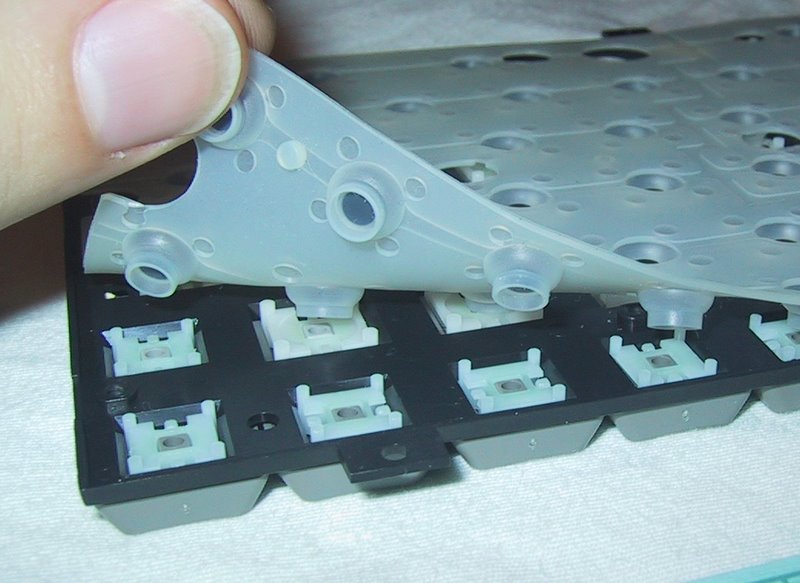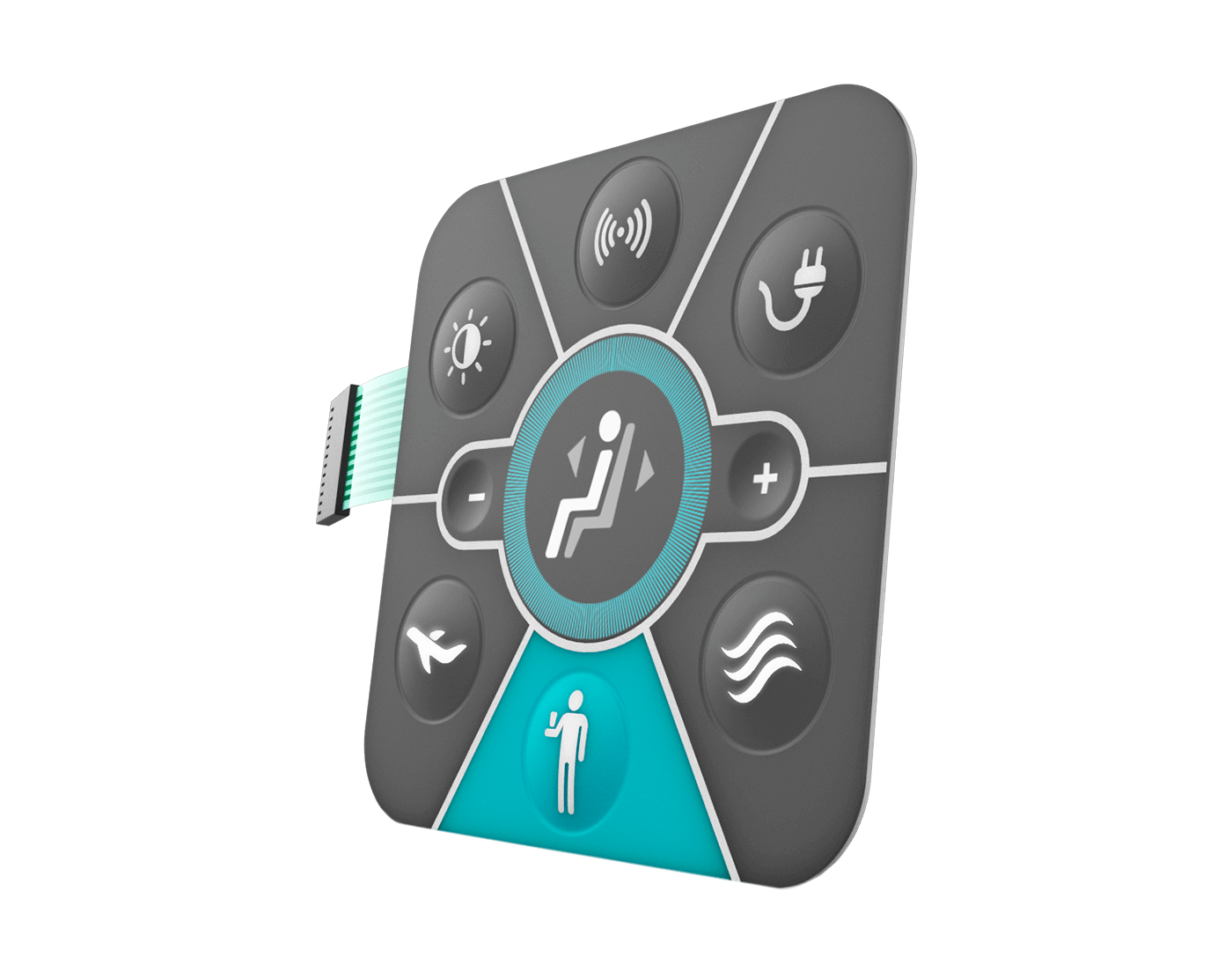Membrane Switches: A Cost-Effective Solution for Product Interfaces
Membrane Switches: A Cost-Effective Solution for Product Interfaces
Blog Article
Comprehending the Importance of Membrane Switches in Customer Interfaces
Membrane buttons are important elements in the design of efficient interface, facilitating not just functionality yet likewise boosting aesthetic charm and customer interaction. Their unique functions, such as resistance to customizable layouts and ecological variables, make them suitable for a varied array of applications throughout multiple markets. As we discover the future patterns and various benefits related to Membrane innovation, it becomes clear that these buttons are greater than just elements; they represent a convergence of technology and usefulness. The implications of this innovation on customer experience are worth checking out even more.
What Are Membrane Buttons?

The spacer layer, which has sticky residential properties, enables the splitting up of the circuit layer from the overlay, guaranteeing that the switch remains in a non-activated state till pushed. When pressure is put on the overlay, it presses the spacer layer, connecting the gap and finishing the circuit in the underlying layer. This layout not only decreases the physical space needed for traditional mechanical buttons yet likewise enhances the durability of the tool, as Membrane switches are usually resistant to dust, dampness, and various other environmental variables.
Frequently discovered in applications varying from consumer electronics to clinical devices, Membrane buttons are essential to modern technology, giving a reliable and straightforward interface that aligns with modern design demands.
Advantages of Membrane Switches
While many switch modern technologies exist, Membrane Switches deal unique benefits that make them especially preferable in different applications. Among the primary advantages of Membrane switches is their small layout, which enables space-saving executions in gadgets where actual estate is limited. Their thin account not only improves visual appeal but additionally facilitates light-weight building and construction.
One more considerable benefit is their resistance to environmental aspects. Membrane switches are usually secured versus moisture, dust, and impurities, making them ideal for use in requiring settings, such as clinical devices and industrial devices. This longevity extends the life expectancy of the button, lowering upkeep costs and enhancing dependability.
Additionally, Membrane buttons can be tailored to fulfill details design demands, incorporating unique graphics and colors that improve individual communication. Their responsive responses alternatives can additionally be customized to give a satisfying user experience. Additionally, Membrane switches are cost-effective, particularly in high-volume applications, as they can be produced efficiently.
Applications in Numerous Industries

In the customer electronics sector, Membrane switches prevail in tools such as microwaves, washing machines, and remotes. Their tactile responses and visual options boost individual experience while providing a streamlined, contemporary appearance. Furthermore, automotive suppliers use Membrane switches in control panel controls and infotainment systems, where room is limited, and user involvement is vital.
Moreover, the commercial sector leverages Membrane buttons in control panels for machinery and tools, permitting instinctive operation in commonly harsh settings. Their resistance to chemicals and Full Report moisture makes certain longevity and reliability in these applications. In general, the flexibility of Membrane Switches contributes significantly to their extensive usage, making them indispensable in different technical domains.
Layout Factors To Consider for Membrane Switches

When designing Membrane switches, numerous essential factors to consider have to be taken into consideration to guarantee ideal capability and customer experience. The option of materials is important; choosing long lasting, high-quality substrates can enhance the switch's longevity and resistance to environmental factors such as moisture and temperature level variations.
Second of all, the layout of the visuals explanation overlay must prioritize clearness and simplicity of use. Icons and message have to be understandable, and the design must help with intuitive interaction (membrane switches). In addition, responsive comments is vital; incorporating a tactile dome or various other systems can enhance the customer experience by giving physical confirmation of activation
Another important variable is the button's electrical efficiency. Developers must make certain that the conductive traces are effectively created to reduce resistance and avoid signal disturbance. This involves analyzing the needed actuation force and making certain compatibility with the digital components they will certainly interface with.

Future Patterns in Membrane Innovation
As modern technology continues to breakthrough, Membrane buttons are poised to progress significantly, driven by technologies in materials and producing techniques. One emerging fad is the incorporation of innovative materials, such as conductive inks and adaptable substrates, which enhance toughness and reduce the general weight of Membrane buttons. These materials not just boost the tactile reaction however also enable the layout of buttons that can endure harsher ecological problems.
Furthermore, the integration of touch-sensitive innovations is changing traditional Membrane Switches into more interactive interface. Capacitive touch sensing units embedded within Membrane switch panels can offer a much more receptive and intuitive individual experience, lining up with the expanding need for streamlined, modern-day designs in consumer electronics.
Additionally, developments in printing methods, such as electronic and 3D printing, make it possible for quick prototyping and modification of Membrane buttons. This adaptability permits suppliers to react faster to market demands and customer preferences.
Finally, sustainability is ending up being a considerable focus, with producers checking out environment-friendly products and processes. As these trends unfold, the future of Membrane modern technology assures boosted functionality, visual allure, and ecological duty, solidifying their role in advanced interface throughout different markets.
Conclusion
In conclusion, Membrane Switches represent a vital part in the layout of individual interfaces, integrating functionality with aesthetic adaptability. Their benefits, including durability and resistance to ecological aspects, make them appropriate for diverse applications throughout different industries. Thoughtful layout considerations enhance customer interaction and experience. As advancements in innovation continue, the advancement of Membrane buttons is expected to more fine-tune user interfaces, this content driving advancement and improving use in a progressively intricate technological landscape.
Membrane switches are essential parts in the design of efficient customer interfaces, facilitating not only capability yet also improving visual appeal and user communication.Membrane Switches offer as an important element in numerous user interfaces, helping with a smooth communication in between users and electronic gadgets.While many button modern technologies exist, Membrane Switches offer distinct advantages that make them especially preferable in numerous applications.Furthermore, Membrane buttons can be tailored to meet details style demands, incorporating distinct graphics and colors that boost customer interaction.In final thought, Membrane Switches represent an important element in the style of individual interfaces, integrating performance with aesthetic flexibility.
Report this page